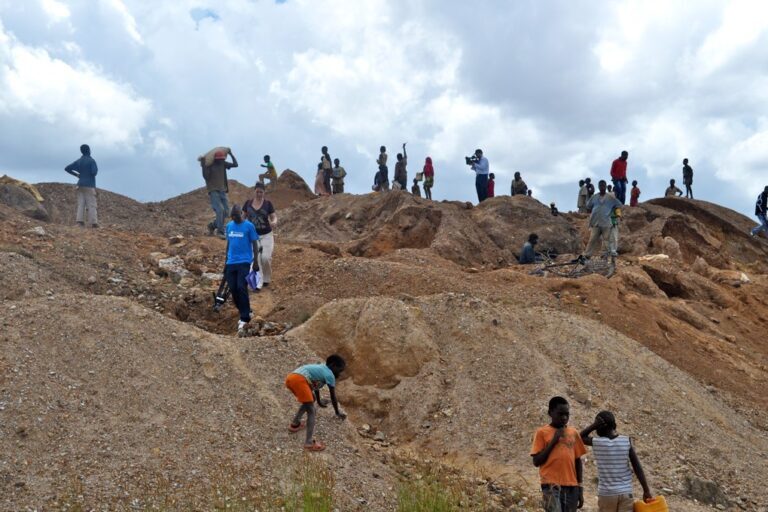- cross-posted to:
- technology@beehaw.org
- cross-posted to:
- technology@beehaw.org
cross-posted from: https://feddit.org/post/4948787
Certain minerals and elements, including cobalt, copper, lithium and nickel, are crucial for the manufacture of renewable energy technologies, including electric vehicles and solar panels. However, the extraction and processing of those minerals often takes place in developing countries, far from public scrutiny and without consent from local communities, which can be left with the burden of pollution but little economic benefit.
Key stakeholders at the ongoing U.N. climate meeting, COP29, are pushing for greater transparency, arguing for the need to ensure local environments are protected and economies improved along the critical minerals supply chain.
Efforts for a binding global treaty on traceability for critical minerals was first launched by the Colombian government on the sidelines of the recent U.N. Biodiversity Conference in Cali, Colombia. The goal is to ensure a global pact is ready to be signed by November 2025 when the next U.N. climate talks meet in Belém, Brazil.
[…]
At the 2023 U.N. climate meeting, the global community set a goal to triple the world’s renewable energy capacity by 2030. Such an increase in renewable energy is needed to fight the climate crisis but would likely result in a commensurate increase in demand for critical minerals as well. That makes efforts to ensure greater transparency in the value chain more important than ever for local communities and Indigenous people living in resource-rich areas.
[…]
The principles underpinning the U.N.-backed initiative include advancing fairness, justice, equity and human rights across the critical minerals value chains. It seeks to source critical minerals in a way that protects the environment and ensures prosperity in resource-rich developing countries.
“We must now seize the opportunity to grow our economies, protect our societies, preserve our environment and share benefits more justly while we tackle the climate crisis,” said Ditte Juul Jørgensen of the European Commission and co-chair of the Panel on Critical Energy Transition Minerals. “Only in this way, will we tap the potential of the energy transition and create new and shared benefits for all,” she added.


